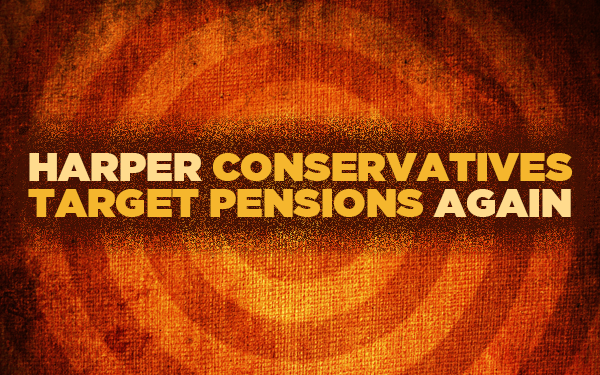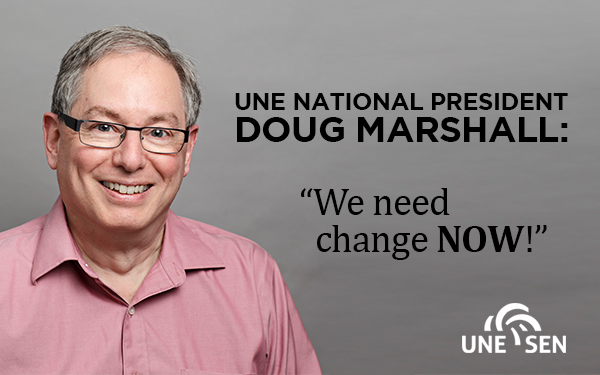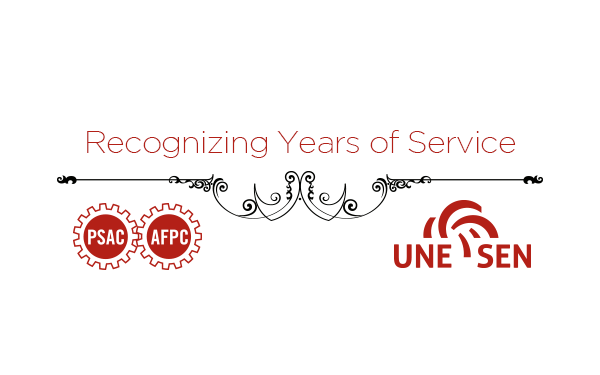
The Federal Government is in the process of drafting legislation representing an unprecedented attack on the retirement security of all Canadians. If the Conservatives are re-elected and push through this legislation, the defined benefit pension plans of federally-regulated workers will be at risk of being converted to target plans with lower pension benefits for both retirees and active employees.
Significant incentives would be provided to employers to get rid of the much better defined benefit plans and convert these to targeted pension plans. This will be at the expense of stable retirement income that workers have already paid for through their pension contributions.
What are target pension plans?
- Reduce pension benefits for both contributing employees and pensioners
- No guarantee the promised benefit will be maintained in retirement
- Risk is completely shifted from governments and corporations to vulnerable employees
Background
- In 2014, the government announced a rushed consultation process on target benefit pension plans for federally-regulated workers
- In the 2015, the government tabled a budget saying they are “assessing” voluntary target benefit options” for Crown Corporations.
- Any proposed change would require the amendment of federal pension laws.
What has the PSAC done?
The PSAC presented a submission during the consultation process opposing this type of these types of pension arrangements.
Canadian Labour Congress (CLC) initiatives
Emergency resolution
- At the CLC Triennial Convention in 2014, an emergency resolution was tabled calling unions to defend workers and pensioners against any and all attacks to pensions,
“Retirement Security for Everyone” Campaign
- PSAC continues to support the CLC “Retirement Security for Everyone” campaign as the most effective means of securing the future retirement incomes of working Canadians.
A solution to a problem that doesn’t exist
- Current federal pension legislation and regulations already protect the pension benefits of plan members and retirees from being reduced. The funding status of defined benefit pension plans is improving significantly with improving investment returns and gradual increases in long-term interest rates.
- For example, the defined benefit pension plan for Air Canada reported for 2013 a solvency deficiency of $3.7 billion. However, in January of 2014, Air Canada had announced the complete elimination of the pension solvency deficiency.
Is the Federal Public Service Pension Plan the next “target”?
- The introduction of target pension plans in the federal sector opens the door to other legislative changes and puts all defined benefit pension plans at risk.








